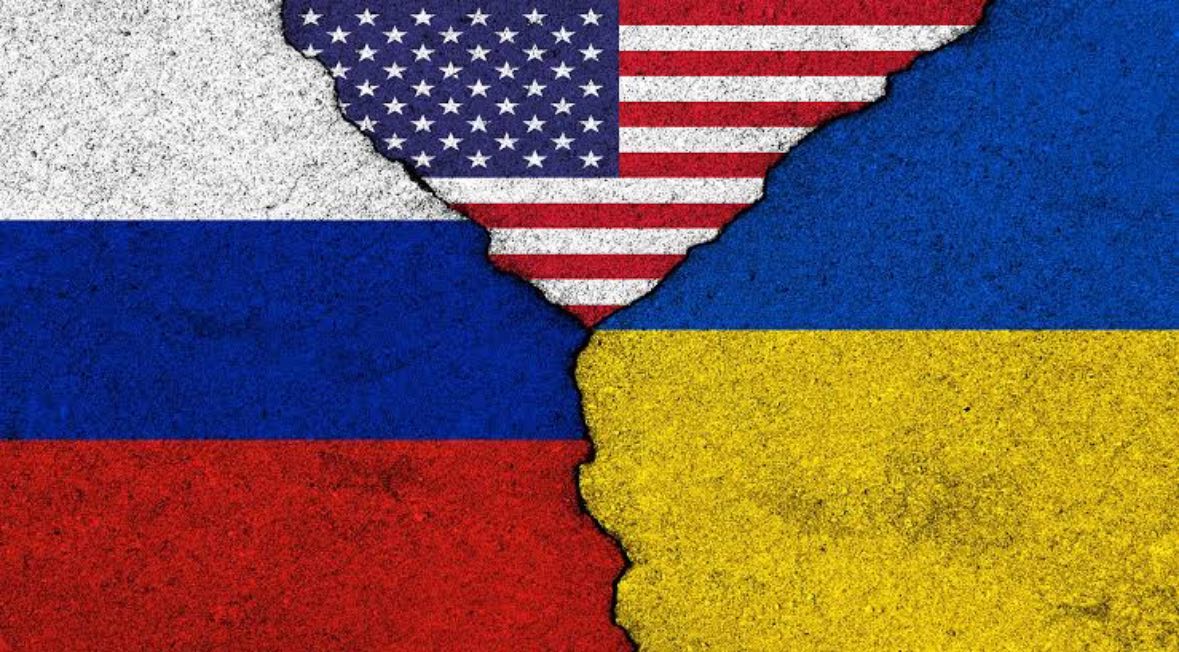The Triangle of America, Russia, and Ukraine
The Triangle of America, Russia, and Ukraine
The tragedy of Ukraine is one of the most sorrowful events of the past half-century that deserves reflection and learning. Ukraine is the second-largest country in Europe after Russia and the eighth in terms of population in Europe. It is a country with a three-thousand-year-old civilization heritage, which is the most important geopolitical link in the security and communication chain between Russia and the West. A country with the largest, richest, and most diverse mineral resources in the world.
Half of Russia’s iron and steel are supplied from Ukraine’s resources. 40% of the world’s manganese resources are in this country. There are over 8,000 mines with 90 types of minerals in this country, the most important of which are coal, nickel, iron, manganese, and especially titanium. More importantly, it has black soil, known as the most fertile soil in the world, which requires no fertilizer.
Ukraine alone holds a quarter of the world’s black soil, which has turned Ukraine into the largest grain producer in Europe and the world. In fact, this fertile soil and unique mines have become the national capital of this country. Ukraine is also considered the energy corridor of Europe and an important source for gas transfer from Russia to Europe.
This excellent geopolitical and economic position has turned Ukraine into a place of conflict and struggle between the West and Russia. However, the lack of political management after independence has resulted in a great tragedy for this country, to the extent that today, after the Russian invasion, significant parts of its territory have been occupied by Russia. Its economy has been completely damaged, and it faces an uncertain and insecure future.
Recently, U.S. President Donald Trump humiliated Ukraine by announcing his conditions for supporting the security of Ukrainian President Volodymyr Zelensky’s government. Trump, by endorsing Russia’s territorial acquisitions, demands that Ukraine cede ownership of 50% of its unique mines, such as titanium, nickel, and manganese, to the U.S. and also refrain from requesting NATO membership.
In reality, the U.S. and Russia, by dividing interests in Ukraine, have practically turned this country into a new colony. Ukraine’s experience is a bitter one that can serve as a lesson for all countries.
The first important lesson to learn from the tragedy of Ukraine is that war never ends, and peace and calm are never achieved in areas of economic and geopolitical importance. The second lesson is that the promises, slogans, and commitments of great powers should not be trusted, as these promises change according to their needs and conditions. The third lesson is that great powers have shared interests that they do not divide with anyone, considering them exclusively theirs and redefining all tools to guarantee them.
The fourth and most important lesson from the tragedy of Ukraine is that the only friend and ally of great powers is their interests and nothing else. Consequently, countries in similar situations to Ukraine should not imagine or believe that they can secure their interests and independence through alliances with them in the global power equation.
Doubt is the greatest wisdom in relations with powers, and being strong means accepting the reality that one must rely solely on the people and their demands. The importance of Ukraine’s tragedy for us lies in the similarity of our situation and conditions with this country.
Iran, with its excellent geopolitical position as the junction of communication for four major powers—Europe, the U.S., China, and Russia—has diverse reserves and mines and a significant geographical diversity. It possesses one of the largest fossil fuel reserves in the world, has a civilization heritage spanning several thousand years, and is undoubtedly the most pristine land for investment.
It has a capable workforce, and all these are tempting for the great powers. What is important and vital for us today is the necessity of proper and wise management of internal developments, avoiding polarization and extremism, preventing warlike tendencies, learning the values and importance of global diplomacy, creating social solidarity, fully utilizing all national and human capacities, and accepting the reality that what is important, vital, and guarantees our independence, national interests, honor, dignity, perseverance, and resilience are the national interests and welfare of the people.
Any force or movement that seeks to drag Iran into a conflict or war with the U.S., Israel, or any other power is opening a path to Iran’s destruction. Any force, movement, or group that seeks to portray Iran as secure in maintaining its independence by relying on a global power is making a historical mistake.
Iran needs wisdom in internal management more than anything else to pass through this important historical period, and this is not possible without precise, immediate, and serious reform of domestic policies and trust and reliance on the people, in practice, not just in words and slogans. Iran and its independence are important—let us believe this before it is too late.

